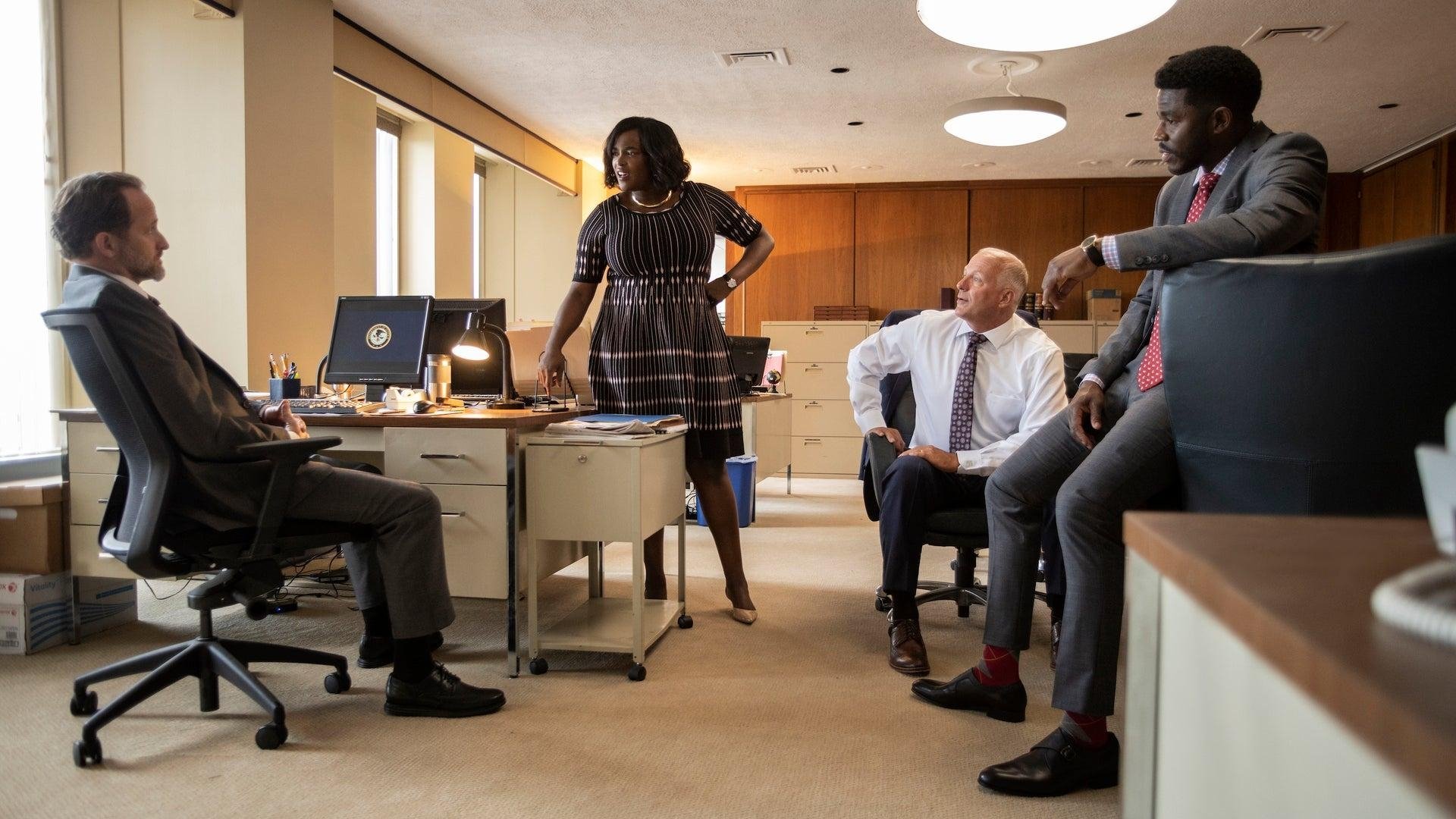“The city of Baltimore is a poster child for the basic failure to stop lawlessness.” The line, uttered by Gov. Larry Hogan back in October 2021, is peppered through the opening credits of HBO’s We Own This City. The sentiment and the aggrieved tone with which it was delivered offer some necessary context to the world audiences are thrust into in this adaptation of Baltimore Sun reporter Justin Fenton’s book of the same name (subtitle: A True Story Of Crime, Cops And Corruption). Hogan’s rhetoric claims that what you find when you look at 21st century policing in the Maryland city is an urban area ravaged by crime that’s in need of more cops on the streets. In that same press conference, he added that, “To reverse the tide of rising crime, we need to stop demonizing and sabotaging the dedicated men and women who risk their lives every single day to keep the rest of us safe.”
Take Sgt. Wayne Jenkins (Jon Bernthal, really relishing that Baltimore accent). He may say all the right things when he’s first on screen: “You ain’t getting jack shit being brutal,” he tells a bunch of cops during their requisite training, stressing how they won’t do themselves any favors brutalizing the very people they’re sworn to serve and protect—and also, those criminals whose arrests they really want to make stick in court. That opening scene, which juxtaposes his surprisingly canny assessment of policing in the wake of the Freddie Gray murder with what street policing actually looks like (not to mention the way it’s buttoned by him smashing a guy’s liquor bottle with his baton for no apparent reason other than willful intimidation) captures the central tensions of the show: Is there such a thing as “good” (and effective) policing? Is the concept of a “good” cop the stuff of fiction?
As it follows the Gun Trace Task Force, a cabal of cops who ran themselves arguably like a criminal operation of their own, We Own This City is a gripping heir to The Wire, David Simon’s most celebrated HBO series. But perhaps such a comparison, while necessary, need not dominate the discussion around Simon’s latest project, co-developed with George Pelecanos, and directed by Reinaldo Marcus Green (of the masterful Monsters And Men and, most recently, King Richard). But it’s worth noting that these three men are deeply invested in the minutiae of what the job of a police officer entails. You can see that even in the way they’ve chosen to situate us. Police logs that take over our screen are what help us know when and where we are (“Name: Jenkins, Wayne E. Type of Activity: Execution of S & S Warrant. Time in: 1602. Location: Collington Square. Date: Feb-17-2017.”)
But this isn’t (solely) a show about dirty cops. As its sprawling ensemble—it includes Josh Charles, Jamie Hector, Darrell Britt-Gibson, Dagmara Domińczyk, and McKinley Belcher III among others—suggests, We Own This City asks us to think broadly about police reform. This is a dissection of a system, of a structure, of an institution. So while we do follow investigators who end up blowing open the criminality at the heart of the city’s Gun Trace Task Force, we also follow a murder-unit officer trying to do better by his city, and, perhaps most tellingly, we get to see Wunmi Mosaku’s Nicole Steele grit her teeth and get to work in the city’s Civil Rights Division of the Department of Justice.
It’s not just that Mosaku’s mere screen presence lights up every and any scene she’s in (for she is luminous even when playing the mild-mannered if strong-willed Steele), it’s that her storyline helps put the other ones around her—about drug busts and seemingly random murders, about federal investigations and local politics—in better context. That’s true even when she’s called to vocalize questions that often feel like what Simon, Pelecanos, and Green want us to think when we watch this or any other law enforcement narrative. “How the hell does an officer rack up over 50 civilian complaints of brutality and abuse in one career and remain on the street?” she asks the police commissioner. “If policing gets so indiscriminate, who talks to you?” she asks a cop when discussing the violent ways BPD uses to crack down on crime.
As it slowly threads its many storylines together, We Own This City paints a dire if necessary portrait of a city and a law enforcement agency. As young recruits get told they need to forget all the sensitivity training they were taught and as roughened veterans feel themselves inviolate because of their badge, the engrossing HBO series manages to structure itself like a self-aware procedural that constantly asks us to question what we think we know about how criminality is conceived by and within police departments all over the country.









































